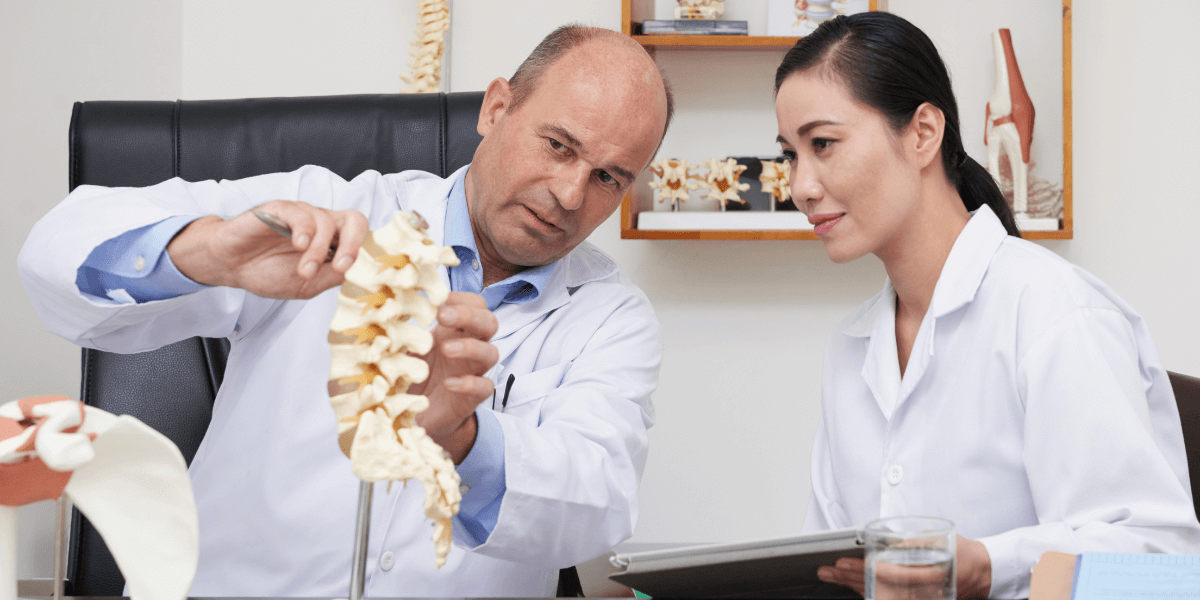

Notice: Coppell Office Moving Soon | New Address: 897 N MacArthur Blvd, Ste 110, Coppell, TX 75019


Most people experience neck and back pain at some point in their lives, and one common cause of these issues is degenerative disk disease. While degenerative disk disease is a typical part of aging, lifestyle, genetics, and injuries can accelerate its development. Almost everyone has some disk degeneration after age 40, even if they don’t develop symptoms. It can lead to back pain in about 5% of adults. Additionally, not everyone with degenerative disk disease experiences pain, and the origin point of pain and its severity vary from individual to individual. Therefore, properly understanding the condition is crucial to diagnose and treat it on time and maintain a good quality of life.
Your spinal disks, the rubbery cushions between your vertebrae (spinal column bones), act as shock absorbers, helping you comfortably move, twist, and bend. Degenerative disk disease occurs when these disks wear down. It is usual for spinal disks to degenerate as a person ages.
When these disks wear down, the bone in between them comes into contact, leading to pain and other conditions, including:
While older adults are more likely to experience degenerative disk disease, some factors can put you at a higher risk for the condition, including:
People after 40 may start to experience disk degeneration, but not all of them experience pain. You will begin to feel the pain when your spinal disks:
Minor injuries tend to cause small cracks in your spinal disks, typically around your nerves. Even minor tears can cause pain. If your spinal disk’s outer wall experiences a crack, your disk may protrude out, compressing a spinal nerve, which causes intense pain.
Your spinal disks have a watery softcore, but the core naturally loses some water as you age, causing the disks to thin. These thinned disks don’t provide as much shock absorption as before, so you may experience pain.
See Also: Radiofrequency Ablation – An Effective Chronic Pain Management Treatment
Degenerative disk disease usually causes pain in the back and neck. The intensity and frequency of the pain may vary depending on the severity of your condition. For example, you may experience pain that:
Degenerative disease pain can:
To diagnose your degenerative disk disease, your doctor may start asking you about the severity and triggers of your pain, including:
Then, your doctor may order an X-ray, MRI, or CT scan to see your disks' current status and alignment. Following this, they may also perform a physical exam to check your:
Whether degenerative disk disease causes mild or moderate pain, seeking prompt medical intervention is necessary to relieve pain while preventing the condition from accelerating to other spinal diseases, such as spinal stenosis, osteoarthritis of the spine, Spondylolysis, etc. So, receive the proper treatment for degenerative disk disease in Coppell, TX, on time, preventing the aggravation of the pain and potential complications.
Degenerative disk disease takes a toll on your daily life, causing chronic pain and limiting your ability to perform daily activities. Apex Interventional Pain & Spine offers degenerative disk treatment that helps you eliminate back and neck pain. We precisely diagnose and treat degenerative disk disease with the best possible results by combining state-of-the-art interventions, leading-edge technology, and compassionate care.
Contact us today or book an appointment to manage your pain better and improve your quality of life.